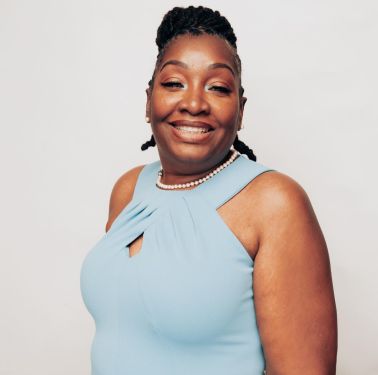Living with HIV: One Woman’s Story of The Power of Community Support

Source: Photos provided by Valencia Landry / other
Valencia Landry’s support system is at the heart of her HIV journey. With her loved ones by her side every step of the way, this Texas mother’s story is defined by community rather than hardship. Valencia spoke with MADAMENOIRE about her HIV journey, becoming an advocate, and the importance of continuing treatment.
The Diagnosis
In June, it will be 19 years since Valencia received her diagnosis. A case of PCP, a type of pneumonia that affects weakened immune systems, uncovered her HIV status at the age of 32. “I had no clue. That was the furthest thing from my mind,” she told MN.
She reached out to a friend after taking some time to process her diagnosis. “I sat with it for a little while. I called my best friend, and she was like, ‘I’m on my way.’ So she flew home,” Valencia recalled. “The first thing she said was, ‘This is not a death sentence. Where do we go from here?’ So that switched my mindset immediately.”
Valencia’s support system—her family and her sister circle—has had a profound impact on her experience living with HIV. “I have had a huge support system from the beginning,” she said. “I always say that I would not be the person I am today without them.”
Having them in the picture made all the difference in how she’s navigated her HIV journey. “Honestly, I haven’t had any major challenges. And I think that goes back to my support system,” she said.
Managing HIV
Today, HIV is considered a manageable chronic disease thanks to continuing advances in medicine. Valencia takes one pill a day to manage her HIV. “I never had a problem accessing medication or adhering to medication,” she shared. “It’s important to take your medications so you can live a long life, an enjoyable life.”
A big part of adjusting to her new normal was managing stress levels. “I had to make sure I kept my stress at bay, knowing that stress would make the HIV worse or make me sicker,” she explained. “It’s also important to keep any other comorbidities that you have in check as well, like diabetes, high blood pressure, high cholesterol.”

Source: Photos provided by Valencia Landry / other
Advocacy
In 2017, Valencia was introduced to the world of HIV/AIDS advocacy by a mentor. “I didn’t really know anything about advocacy. I lived in my own little bubble,” she recalled. “But when I met her, she opened my eyes to a whole different world.”
Since then, Valencia has been active in her community, working with organizations like the Texas Black Women’s Health Initiative, the Positive Women’s Network and the Grace Project. For the past three years, she has attended the Grace Project Conference for Women Living with HIV/AIDS, presenting last year on Overcoming the Hurdles of Living with HIV. “HIV shouldn’t come with a side of stigma,” she said. “Don’t let people put you in a box.”
“I’m the type of person where if I see a need, I love volunteering my time,” she added. “My purpose is to serve others who are in need and to be a listening ear and helping hand to them. I want to be the support system for others like my support system has been for me.”
Words of hope
Nearly two decades after receiving her HIV diagnosis, Valencia remains resilient with her loved ones by her side. “My support system is still the same. In June, it’ll be 19 years,” she said.
The mother and advocate are pillars of her community, giving her time to support and share her story with others. “Your diagnosis is not a death sentence. You are more than your diagnosis,” she said. “You only have one life. You have to live it to the fullest.”

